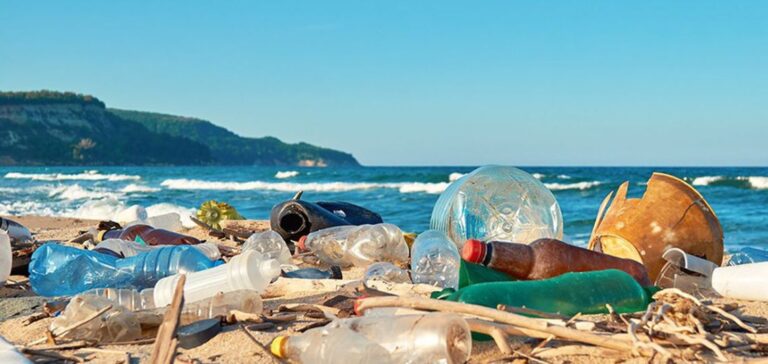In order to combat plastic waste, the United States is calling for the emergence of a coalition prioritizing actions at the national level. This initiative follows the disclosure of a proposal by several G7 members for an international treaty including restrictive measures.
Putting an end to plastic waste
The United Nations had agreed in February on the creation of an agreement to fight against the scourge of plastic waste that covers the seabed as well as the mountain tops. At the time, the institution set itself the goal of finalizing the treaty by the end of 2024.
In August, 20 countries including the UK, Canada, France and developing countries formed the High Ambition Coalition To End Plastic Pollution. The coalition aims to develop a treaty that includes international standards, bans and restrictions on plastic waste.
Defending national action plans
A few weeks after this announcement, the United States announced its intention to create a coalition with a different approach, including Australia and Japan. The goal of this alliance is to base the treaty on individual countries’ efforts in the spirit of the 2015 Paris Agreement.
According to the note of this block, consulted by Reuters, “the development of international action plans” should be “the main mechanism” of contribution of the States to this agreement.
The official representative of the United States for the negotiation of this treaty states:
“The best solution is a treaty similar to the Paris agreements that would help nations commit to ambitious actions while calling for accountability.”
A national policy doctrine challenged
This position is particularly criticized by environmentalists who denounce its lack of ambition. In their opinion, these action plans should be accompanied by measures on a supra-national scale to steer the reduction of plastic production and the development of standardized recycling methods.
Erik Lindjeberg, head of plastics policy management at WWF, has this to say about it:
“We don’t need treaties negotiated at the country level to decide what national policies should be. We need an agreement that would be in addition to those measures.”
Ambitions for an international treaty stalled
The head of Japan’s environmental policy, Hiroshi Ono, said that the treaty could not adopt a standardized approach because of the specificities and priorities of each country regarding plastic production or waste treatment.
The desire to reduce the production of plastic has thus come up against the powerful petrochemical lobby, also present in the United States.
On the other hand, a Washington official, speaking on condition of anonymity, mentioned the risk of a divided Congress rejecting international regulation.
Plastic production is expected to double over the next 20 years, while the volume of waste covering the oceans is expected to triple. The destruction of fragile ecosystems and the extinction of endangered species are inevitable in this case according to a VWF study.





















